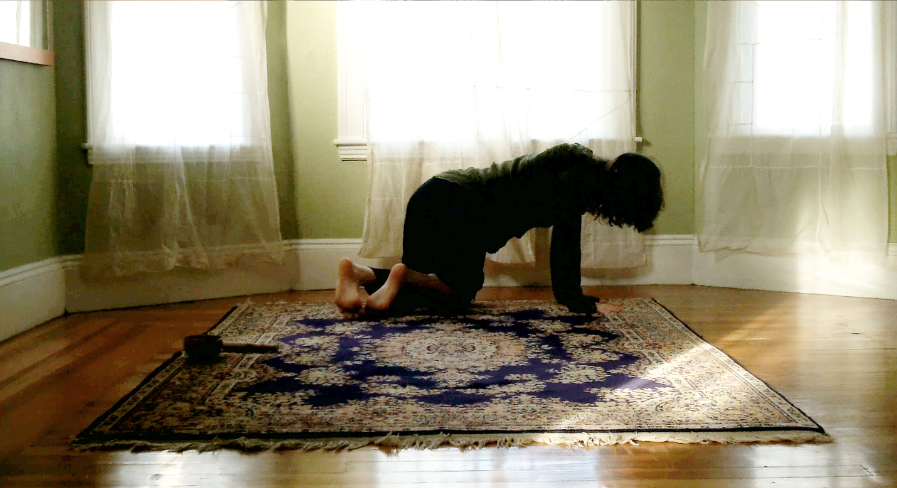Is it worth taking the time to slow down and learn from what the poet Hafiz called “the most insignificant movements of your own holy body?” I believe it is.
In 2018, Erin Geesaman Rabke wrote a widely read and translated article, Why Do Feldenkrais? exploring many fresh ideas about why the Feldenkrais Method® is important personally and even culturally. This fall Erin is exploring these 20 potent themes in a series of enlivening 30 minute Feldenkrais lessons. We hope you join us!
THE FIRST 4 LESSONS ARE FREE:
#1 Age Gracefully
#2 Befriend Yourself
#3 Discover the Gifts Inside Pain
#4 Embody Sustainability
Why Feldenkrais?
1. Age Gracefully
2. Befriend Yourself
3. Discover the Gifts Inside Pain
4. Embody Sustainability
5. Cultivate Less Effort & More Pleasure
6. Decolonize Your Bodymind
7. Feel More
8. Update Your Habits
9. Learn to Slow Down
10. Become Authentically Intelligent
11. Improve Your Brain's Map of Your Body
12. Grow Your Attentional Flexibility
13. Be Mindful and Spontaneous
14. Become Yourself
15. Do What You Want
16. Learn to Trust Something Other than Your Thinking Mind
17. Practice Systems Thinking
18. End the Culture of Domination
19. Embody Ancestral Healing
20. Nurture Reverent Curiosity
There are so many invisible rules we follow, often unbeknownst to us.
This was one of Moshe Feldenkrais’s stated aims of the Feldenkrais Method®, and one that is so dear to my heart as a teacher and student. There are so many invisible rules we follow, often unbeknownst to us.
Whether it’s an instruction your father gave you in childhood about sitting up straight, or someone scolding you about holding your knees together as an expression of modesty, or a yoga teacher’s advice to pull your shoulders in a certain way they thought was “right” once upon a time – often we are walking around carrying loads of conscious or unconscious instructions about how to be in a human body.
I believe in liberating us from these.
The practice of Feldenkrais Awareness Through Movement® offers a profound invitation into a radically new and non-objectified relationship with your own body-mind. It’s not only good for you, but good for the world at large.
Who this is for:
For people new to Feldenkrais who want an experiential understanding of the potential breadth and depth of this approach.
For experienced students of Feldenkrais, including professional Feldenkrais teachers, who are curious about fresh ways to understand the profound impacts of this method.
For anyone who is curious about embodied learning, mindfulness, sustainability, movement, and liberation.
Less aggression / more compassion
In the Why Feldenkrais series, we’re not aiming to tune out the wider world but resourcing ourselves to meet it in sustainable, creative, and life-giving ways.
As we reduce unnecessary and often unconscious aggression in our own movement and postural habits, we’re reducing the amount of aggression in the world. As we embody more lovingkindness in both how we move and how we pay attention, we’re creating a more warm-hearted, accepting presence in the world - both inner and outer. We can explore the gifts inside pain, and discover for ourselves the truth in the statement that boldly says “Genius hides behind the wound.”
Life Changing Attention
Through deepening embodied learning and understanding, participants will glean a rich harvest and many seeds of possibility; gifts that continue to be generative for the rest of our lives.
While the somatic practices we offer are rooted in the practice of moving our bodies, the largest and most significant movements are those of your attention. Learning to pay attention to different aspects of yourself and in different ways is life-changing. Doing movement lessons with inquisitive awareness that help you experience your own anatomy from the inside can massively improve your brain’s map of your body, and so your capacity to use your body in better ways for the rest of your life.
The practice of Awareness Through Movement offers a profound invitation into a radically new and non-objectified relationship with your own body-mind. It’s not only good for you, but good for the world at large.
As Victor Frankl famously said, “Between stimulus and response, there is a space. In that space is our power to choose our response. In our response lies our growth and freedom.” This is exactly the territory we explore in Feldenkrais lessons.
What a blessing to discover there’s an intelligence in every cell in your body that reveals itself when we simply slow down and pay attention to it and through it.
Disclaimer: Once you learn how to learn in this way, you’ll be ruined as far as blindly following other people’s directions for you.
A positive direction →
Image of Feldenkras Trainer Ruthy Alon in her 80s
“Improvement of specific movements in the process of learning becomes merely a bonus, the real gain being that your life takes on a new, positive direction. This means that with the passing of each day and each year you are able to perform every act in an increasingly better way – more efficiently, more wisely, more precisely, and economically – provided that you have not relinquished your determination to seek these qualities.” - Ruthy Alon














